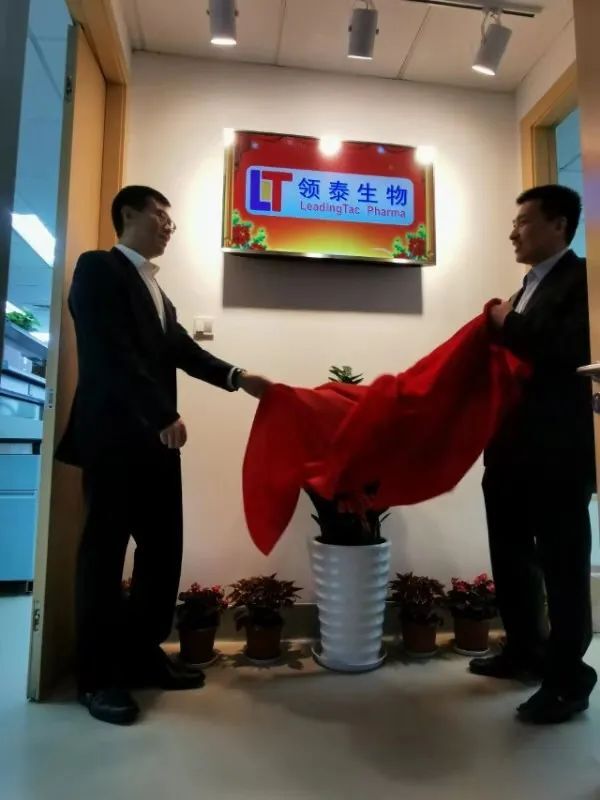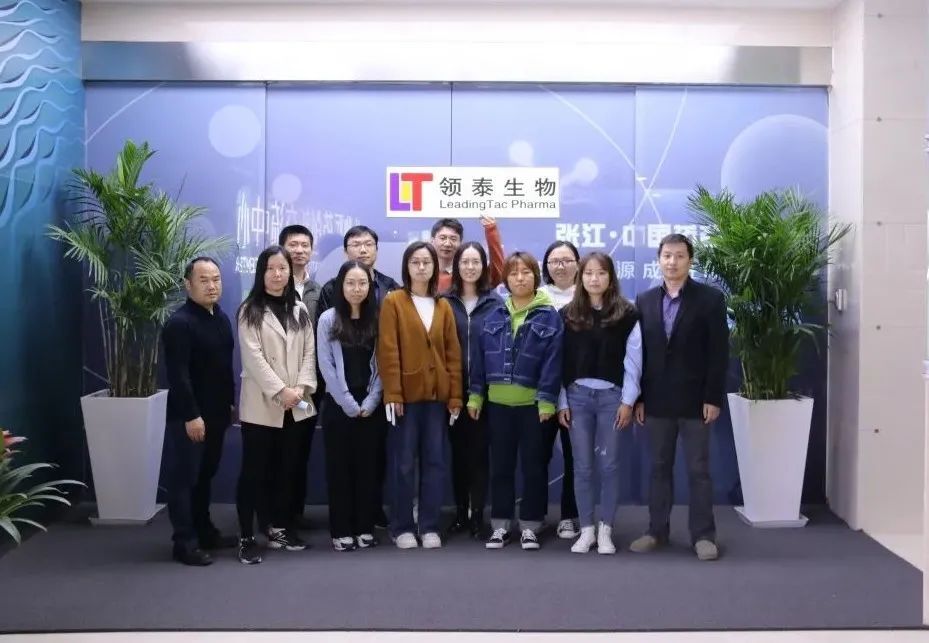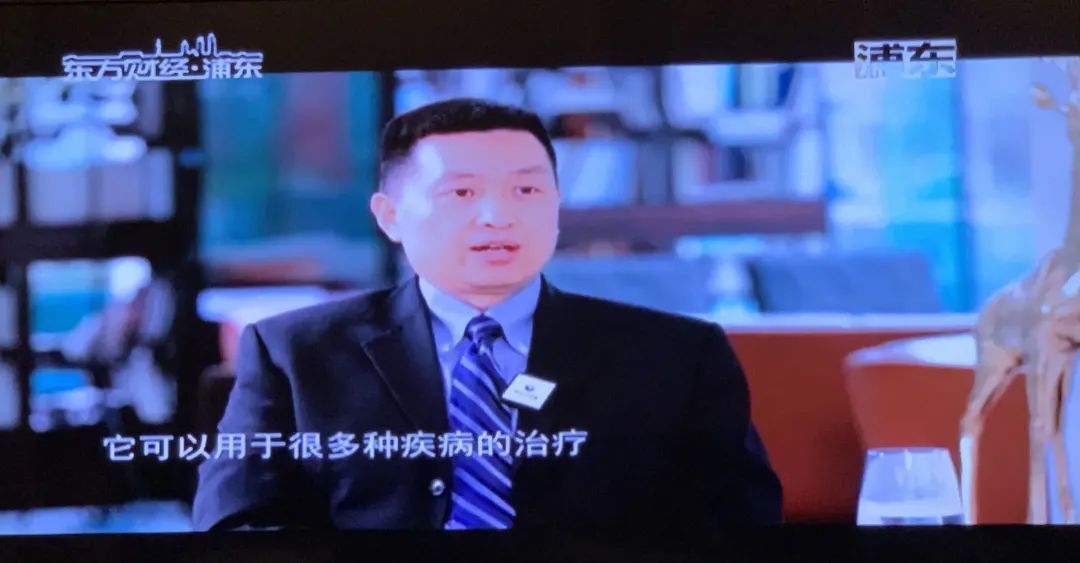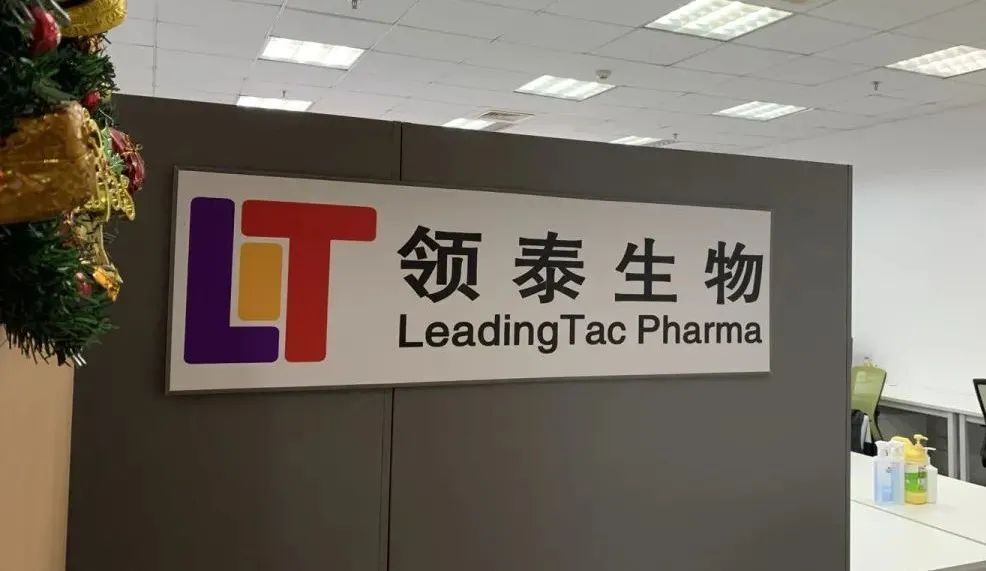At the end of 2019, a new team, Leadingtac Bio, emerged on the track of targeted protein degradation in Zhangjiang Pharmaceutical Valley, Pudong, Shanghai. This company focuses on the research and development of new small- molecule drugs in autoimmune and oncology diseases. Although it was infant, its founder, Yan Feng, was already one of the pioneers of innovative drug development in China in 2005.
Like most aspiring researchers in medicinal chemistry, Yan has always wanted to make an innovative drug on his own. Over the past decade, he has moved between China and the US, from postdoc to executive to entrepreneur, from metabolic diseases to immunology and oncology ......But, thanks to his friends' help, Yan has finally turned his vision of new drug development into reality
1
20 years of stormy road of pharmaceutical research for industry pioneers
In 1996, Yan Feng graduated from Nankai University with a bachelor's degree in chemistry and entered the Shanghai Institute of Organic Chemistry of the Chinese Academy of Sciences to pursue a Ph.D. in organic chemistry. In 2001, he went to the University of Michigan for postdoctoral research. He received four years of training in medicinal chemistry, and the idea of making innovative drugs grew in him.
In 2005, Yan Feng was about to start a new research journey. At that time, China had yet to form an innovative drug R&D environment, the capital was not optimistic about this field, and there was no corresponding policy support, so it was challenging to make a difference. "There were almost no new drug R&D companies, and more than 90 percent (of the companies) were doing generic drugs."
Faced with this situation, Yan Feng chose to return to China, thinking, "This is an opportunity."
The development of SGLT2 inhibitors is scorching, and up to now, several SGLT2 inhibitors have been marketed worldwide, represented by Dagliflozin. The indications have been expanded from diabetes to heart failure, weight loss, and chronic diseases. In just two years at Egret, Yan led the team to develop several series of active compounds and identified a preclinical candidate (Bexagliflozin).
However, good things never come easy, and like all First in Class drugs, the initial development of SGLT-2 inhibitors was not smooth. Due to potential side effects such as urinary tract infections, BMS' dagliflozin even went through denial of marketing in the U.S., additional data reapplication, and finally, FDA approval for marketing in January 2014 after being approved by the EMA in November 2012. Therefore, as the first echelon of SGLT-2 inhibitor R&D, the advancement of BMS's Bexagliflozin has also been relatively slow, with global multicenter Phase 3 clinical completion only in 2019. This experience at Egret Pharma made Yan feel that although the opportunities for new drug development in China have always been there, due to the uncertainty of new drug development, the founder of a new drug development company must be determined to seize the opportunities and conform to the environment. Otherwise it would be difficult to cope with the disadvantages of the general environment.
In 2007, Yan left White Heron Pharmaceuticals and went to the United States again to continue his disease and drug development research at Columbia University School of Pharmacy. In 2010, he decided to return to China.
In 2007, Yan left White Heron Pharmaceuticals and went to the United States again to continue his disease and drug development research at Columbia University School of Pharmacy. In 2010, he decided to return to China.
At Sundia, Celgene is one of Yan's most important clients. This American biopharmaceutical company focuses on drug development in the field of immunology and medical oncology, and the molecular gum lenalidomide and parmadomide, which can induce the degradation of transcription factor zinc finger protein IKZF1/3 by CRBN, is the first product of Sunbase. Through years of communication and exchange, Yan gradually became familiar with and accumulated the theoretical knowledge and "Knowhow" related to the development of targeted protein degradation drugs. And he also mastered the "golden key" of various drug molecule development through a lot of cooperation and practice with customers. Then he decided on his research and development direction -- targeted protein degradation. Degradation of disease-causing proteins is significant for disease treatment - the primary cause of many serious diseases is an abnormal expression, misfolding, or dysfunction of these proteins, however, traditional small molecule development methods for such proteins may not be able to reach them.
"Most traditional drugs are inhibitors that inhibit the function of a disease-causing protein by blocking the active site of that protein, but the disease-causing protein remains inside the cell, harboring the risk of disease. Newbase Pharma's punching bags are two degraders that harness the cell's protein degradation mechanism to completely destroy the disease-causing protein, which may provide better, longer-lasting efficacy."
Protein degraders (Protein Degrader) first entered the patent literature in 2001, and in 2013, to bring protein degraders to the clinic, Professor Crews of Yale University founded Arvinas. In 2015, Professor Crews published an article stating that protein degraders had become drug-ready, and the protein degradation circuit began to buzz.
In March 2019, Nature published an article stating that protein degraders based on Proteolysis-Targeting Chimeras (Protein Degrader) technology may become the next heavyweight drug.
For a while, the enthusiasm of the onlookers was ignited, and the crowd went down to start the race. Yan Feng is also setting up a company at the end of 2019 to go deeper into targeted protein degradation.
2
Building on our strengths to open the door to new technologies in targeted protein degradation
At the end of 2019, Yan Feng established Leadingtac in Shanghai Zhangjiang Pharmaceutical Valley to conduct research and development of new drugs and technology platforms.

Leadingtac was founded
The key to drug development is how to screen out the most likely successful targets among a large number of potential targets for clinical application, and for this purpose, major pharmaceutical companies have developed their own technology platforms. Among them, the Specific Protein Ubiquitination and Degradation Drug Discovery (SPUD) platform developed by Yan Feng's team has unique advantages. He said, "While the traditional Western Blotting screening method for degradation activity of compounds is tedious and not very accurate, our platform optimizes the screening method from the source, enabling fast screening, improved accuracy, and rapid construction of conformational relationships for degradation activity of compounds, which is at least 10 to 20 times more efficient than traditional WB in the pre-development process of compounds. able to improve by 10 to 20 times."
Last May, at the American Society of Clinical Oncology (ASCO) annual meeting, Arvinas presented preliminary clinical trial data for two protein degraders, providing the necessary "proof of concept" for protein degradation as an innovative therapeutic modality to move from preclinical to clinical phase studies. Yan Feng compared his SPUD platform with Arvinas' technology platform, "Our SPUD platform should be at the same level as the US head companies in the targeted protein degradation field.
In addition, based on the SPUD platform, Leadingtac is able to continuously produce innovative R&D pipelines with global independent intellectual property rights and is fully autonomous in terms of pipeline layout. Currently, Leadingtac has laid out 5 preclinical pipelines in development for oncology and autoimmune diseases respectively, and has screened preclinical candidates with good degradation activity and pharmacokinetic properties. LT-001, which is planned for psoriasis, atopic dermatitis and other autoimmune rare diseases as indications, is its fastest progressing product in development.
In just one year from 2019 to now, Yan Feng has made his technology platform an industry leader and a small company. He admits that he has gone relatively smoothly in terms of financing and recruiting.

Yanhong Zhang was a colleague at Sandia Pharmaceuticals and she always knew that Yan Feng had his own ideas on innovative drugs. 2019 when Yan Feng decided to start his own business, Yanhong Zhang was the LP (Limited partner) of Zhangke Lianyi (Zhangjiang local venture capital fund), she was very supportive of Yan Feng's decision and introduced Yan Feng to the fund she invested in - -Yu Xiaoyong, the chairman of Zhangke Lianyi. At that time, Yu Xiaoyong also happened to have invested in another small molecule innovative drug company, Yino Pharmaceuticals, whose founder, Dr. Lei Jiang, was Yan Feng's undergraduate tutor.
Multiple parties set up Feng Yan into the fast track, when Yu Xiaoyong and Feng Yan first met, they hit it off, "talked for an hour or two, we were very satisfied with each other." As an angel investor, Zhang Ke led Eagle to inject tens of millions of dollars into Leadtek Bio.
The construction of Leadtek's R&D team is also attributed to Yan Feng's years of experience in different pharmaceutical companies, and its core members are some practical elites with years of experience in new drug R&D. "I am looking for some capable ones, and I don't require how beautiful their resumes are." As a whole, Yan Feng's team members are deep and steady in chemistry, molecular biology, pharmacology and other fields, and with cross-collaboration, Leadtek Bio's technology development is more rapid than similar companies.
In terms of business strategy, Yan Feng chose the "VC+Platform+IP+CXO" model, allowing his own team to control the core aspects of the new drug development process and leaving the non-essential work to other teams, thus reducing risk and improving overall efficiency.
3
Benchmarking with international standards To become a track leader from an exclusive gatekeeper
Yan Feng's wife commented that from the time he joined Egret Pharmaceuticals in 2005, "it was like he was possessed and always wanted to make a new drug out of it". When asked what it was like to start a business, Yan Feng laughed: "Pain and pleasure."
When he was an executive at Sandia, Yan Feng was only responsible for the data quality of the project, and it was not a question he needed to think about how the project would turn out. "But after starting the business, I am not only responsible for the quality of data, but also for the success or otherwise of the project, and for the investors, giving them predictable expectations, which is a big shift, which is a challenge."
At present, it seems that there are no major twists and turns in the early development of Leadtek Biologics, but Yan Feng said that the development of new drugs can be described as "nine deaths and a lifetime".

Founder Yan Feng interviewed by the media
Some time ago, a recent report on the success rate of drug clinical development showed that the success rate of drug development projects from phase 1 clinical to FDA approval for marketing in the past decade was only 7.9% on average, and the time required was 10.5 years on average. Leadtek Bio has only completed its first round of funding and cannot predict what difficulties lie ahead.
The most painful time is yet to come, and Yan Feng says he is mentally prepared for it. "What other entrepreneurs have experienced, we will definitely experience as well. Meeting the challenges of data, investors, or otherwise, I've been preparing for years since the idea of making innovative drugs began."
In recent years, the establishment of the Science and Technology Innovation Board, the inclination of national policies, and the favor of capital have made domestic new drug R&D a new windfall, and the R&D environment is different from that in 2005. China's new drug R&D is truly on par with international standards. Yan Feng chose to set up his business in Zhangjiang not only because of his affection for Zhangjiang for more than ten years, but also because of the resource aggregation and talent advantages here. He hopes to take advantage of the favorable situation now and fast track to become a head company in the field of targeted protein degradation.
He revealed that Leadtek will submit its first IND filing (new drug clinical trial registration application) next year, and complete the screening of preclinical candidate compounds, preclinical study trials and submit INDs for another 1 to 2 pipelines within 2 years.

In addition, Leadingtac expects the next round of financing to be between RMB 80 million and RMB 100 million. In terms of long term planning, Yan Feng hopes that Leadtek Bio will be listed in Hong Kong in 2025.
In the future, based on its own SPUD platform, Leader Bio will also collaborate extensively with external teams to maximize its own new drug development potential and make greater contributions to the pharmaceutical field.
Yan Feng said he hopes he can become the leader of the targeted protein degradation track with LeadingTac - that is, LeadingTac.